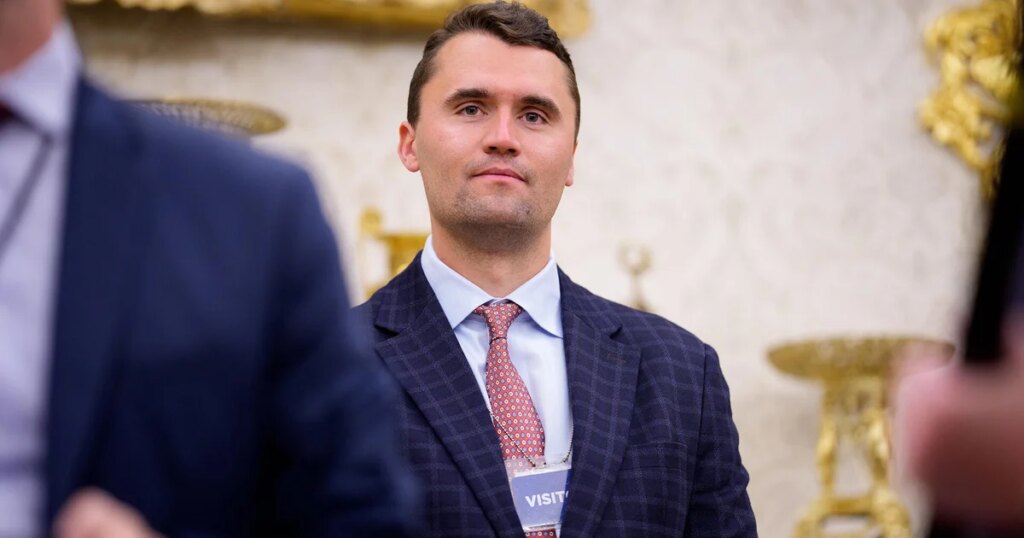The State Department has taken firm action by revoking the visas of six individuals for making incendiary remarks on social media regarding the assassination of conservative activist Charlie Kirk. The comments, which originated from individuals in various countries, suggested that Kirk deserved his fate. The decision reflects the United States’ stance of not tolerating celebratory remarks or threats towards its citizens, as the nation grapples with the implications of free speech versus national security.
| Article Subheadings |
|---|
| 1) Overview of Visa Revocations |
| 2) Response from U.S. Officials |
| 3) The Circumstances of Kirk’s Death |
| 4) Broader Implications of the Crackdown |
| 5) Legal Perspectives on Visa Revocations |
Overview of Visa Revocations
On September 10, the U.S. State Department announced the revocation of visas held by six individuals who made provocative comments on social media following the assassination of Charlie Kirk. These individuals hailed from several nations, including Argentina, South Africa, Mexico, Brazil, Germany, and Paraguay. Reports indicate that some comments implied that Kirk deserved to be harmed as a response to his conservative activism. The U.S. government characterized these statements as unacceptable, arguing that it has no obligation to permit foreigners who express wishes of violence against Americans to remain within its borders. Such a response fits into a broader policy that seeks to deter foreign individuals from fostering an environment of hate and violence.
Response from U.S. Officials
The official response from the State Department followed a series of incendiary online comments. A high-ranking official vowed to take “appropriate action” against any visa holders publicly praising Kirk’s assassination. This initiative was further supported by Marco Rubio, the Secretary of State, who confirmed that “visa revocations are underway.” There has been a clear push from U.S. officials to monitor social media activity, inviting individuals to report concerning posts. This response aligns with the broader desire to maintain safety and uphold the dignity of American citizens, reinforcing the government’s position against those who incite violence or promote threats, particularly in a politically charged atmosphere.
The Circumstances of Kirk’s Death
Charlie Kirk, a prominent conservative activist and co-founder of Turning Point USA, was tragically shot on a college campus in Utah while addressing students. This incident took place during an event on September 10, raising significant concerns about safety at educational institutions. The assailant, identified as Tyler Robinson, a 22-year-old Utah resident, allegedly fired the fatal shot from the roof of a nearby building. Robinson is now facing aggravated murder charges, as law enforcement officials continue their investigations into the motives behind the shooting and the circumstances surrounding it. The response to Kirk’s assassination indicates a rising sensitivity towards violence against political figures, particularly within environments that are supposed to foster open dialogue and differing opinions.
Broader Implications of the Crackdown
The recent visa revocations are part of a larger crackdown by U.S. authorities targeting social media commentary deemed inappropriate or harmful. Aside from the actions taken by the State Department, other governmental entities, including the Pentagon and the Secret Service, are reported to have suspended personnel who made derogatory remarks about Kirk on social media. Furthermore, Vice President JD Vance has encouraged citizens to take action, suggesting they notify employers about individuals who celebrate Kirk’s killing. This collective response illustrates an increasing intolerance towards rhetoric that seemingly glorifies or trivializes violence, thereby aiming to project a national stance on responsibility and respect.
Legal Perspectives on Visa Revocations
The legal framework surrounding visa revocations based on speech-related issues remains a contentious topic. Legal experts, including Eugene Volokh, a UCLA law professor, assert that while the U.S. government has broad discretion regarding who can enter the country, it faces substantial challenges when considering deportation based on individuals’ speech. Non-citizens, similar to citizens, possess First Amendment rights; however, these rights can become complicated by issues of national security and public safety. The debate raises fundamental questions about the balance between free speech and the government’s obligation to protect its citizens, suggesting that the lines drawn in this area of law are still evolving.
| No. | Key Points |
|---|---|
| 1 | Visas revoked for six individuals making violent comments about Charlie Kirk’s assassination. |
| 2 | U.S. officials emphasize the importance of monitoring social media for harmful rhetoric. |
| 3 | Kirk was assassinated on September 10 during an event at Utah Valley University. |
| 4 | The crackdown extends beyond visa revocations to actions against military personnel and federal agents. |
| 5 | Legal complexities surround the justification for deporting individuals based on free speech. |
Summary
The recent revocation of visas by the U.S. State Department highlights the complex relationship between free speech, national security, and the responsibilities of the government to protect its citizens. As the country grapples with the implications of Kirk’s assassination, officials are asserting their stance against any form of advocacy for violence, demonstrating a commitment to ensuring safety and respect within the public discourse. The situation represents a significant, perhaps unprecedented, intersection of immigration policy and free speech considerations, signaling that the national conversation about these issues is far from over.
Frequently Asked Questions
Question: What led to the revocation of the visas?
The visas were revoked due to incendiary social media comments made by the individuals, suggesting that the late Charlie Kirk deserved his assassination.
Question: Who is Charlie Kirk?
Charlie Kirk is a conservative activist and co-founder of Turning Point USA, a group aimed at promoting conservative values among young people.
Question: What are the legal implications of visa revocation over speech?
The legal ramifications about deporting individuals based on speech are complex; while the government has broad discretion regarding entry into the country, First Amendment rights complicate issues surrounding deportation based on expressed viewpoints.


